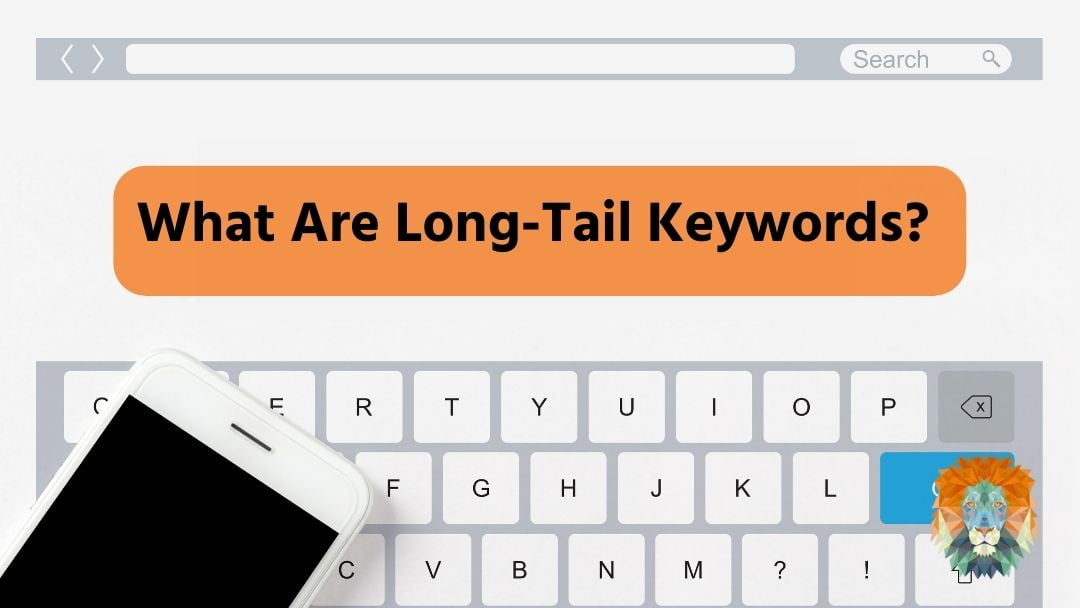In the world of SEO, not all keywords are created equal. Some are more in demand than others, can gain you more success, or are even structured differently to achieve different things. If you’re not familiar with what a keyword is – it’s the focus word used on each page of your website to describe what that specific page is talking about. That way if someone searches for it online, Google will be able to identify that content as relevant and serve it up in the search results.
But if you dive a little deeper, you’ll find all sorts of variations on the standard ‘keyword’ you could use. They can all improve your page ranking if you use them properly, but should be used for specific things if you want to get the best results. This is where a lot of people get confused! But don’t worry, we’re here to help you navigate the complex keyword waters, and today we’re going to focus on one type – long-tail keywords.
What Exactly Are Long-Tail Keywords?
Long-tail keywords are essentially search terms that get a smaller number of searches each month, but they are much more specific than a standard keyword is, which can help you reach the right audience. They tend to be more than one word, and very focused in on what the page in question is talking about. They answer specific search queries that would be made, rather than generic topic focusses. For example, ‘long-tail keyword’ is a keyword, and ‘what are long-tail keywords’ is a long-tail keyword.
It’s often easiest think of it as a tadpole with many tails. The head of the tadpole is the ‘head’ keyword, which gets lots of search hits every month because it’s quite a broad topic. Each of the ‘tails’ is then a more specific term, which will get a much smaller volume of search queries per month. But because you can have multiple tails to a single ‘head’ keyword, you can use them to really narrow down when you appear in searches and get in front of the right people.
Let’s look at an example from the legal field:
- A ‘head’ keyword for this industry might be ‘solicitor’. This is an important keyword to rank for, so it needs to be included in your copy. But it’s also very broad, and could be used by anyone who wants to hire a solicitor, is looking to become a solicitor or even just wants a definition of the term. So we need to get a bit more specific.
- A good ‘long-tail keyword’ for this industry would be ‘family solicitor guildford’. This is much more focused and eliminates 2 of those types of searchers from above. Now you have a keyword that will show your web page to people who are looking to hire a specific type of solicitor in a specific geographical area.
See the difference?
Why Use Long-Tail Keywords?
The good news is, that this isn’t a battle between long-tail and head keywords. A good SEO strategy requires both in order to be effective. Because the whole point of writing content for your website – whether it’s a blog post, a web page, a campaign landing page or even a brochure – is to get people to find and read it. That means you need to include some of the phrases they are likely to use when searching for that niche content. Just some of the reasons long-tail keywords are a great thing to include in your content and wider SEO strategy are:
They’re Less Competitive
If you looked up the keyword search volume for a head keyword like ‘solicitor’, you will find a lot of popular keywords with high search volumes. This is good, but it also means you have a lot of competition, and the chances of you getting your page or blog seen in among thousands of others is low. But if you looked up the search volume for a long-tail keyword like ‘family solicitor guildford’, you’re going to find less popular search queries with less competition. So if you target those long-tail keywords, you’re going to stand a much better chance of appearing at the top of the search listings.
You Have More Choice
As with most things in SEO, using long-tail keywords takes time to see the results. Using a single long-tail keyword in your content isn’t going to do the trick, but when you layer a lot of them on top of each other you start to see something magical happen. This is much easier to do because there are thousands of different combinations of words you could use for long-tail keywords. So your content never needs to feel repetitive or stale, and you can get the compounding benefits of the keywords.
It’s Easier To Create Content For Them
Have you ever tried to write an article for a really broad subject and found they end up being thousands of words long? It’s because you’re having to cover a large subject and include a lot of information – but if you’re just using head keywords it’s necessary. But if you use long-tail keywords, you can narrow down the topics you write about, making them more searchable and much easier for you to write as well.
Finding Your Own Long-Tail Keywords
All of that sounds great, so how do you find your own long-tail keywords? After all, you can’t just pick keywords out of the air and hope they’ll work – you need to do some research to find what your target customer is actually looking for. There are a few different ways you can find out which long-tail keywords might work for you, including:
- Using Keyword Tools
There are hundreds of tools on the market, both free and paid, that can help you find and refine your keywords based on actual user behaviour. SE Ranking and the Google Keywords Planner are some of our favourites.
- Define Your Services
Defining your company mission and services in detail can help you generate a lot of long-tail keywords, as well as solidify your marketing strategy. You can also use your own customers to generate ideas by asking them what they searched to find you.
- Snoop On The Competition
Using one of those tools we mentioned earlier, so some research on your competition. Find out what keywords they are ranking for, their long-tail keywords, and how successful they are with each one. This should give you a good idea of what to try and avoid.
- Browse The Internet
Get yourself on forum sites, Quora and Reddit. These are the places people go to ask questions if they can’t find an answer to their question, and they are a goldmine of long-tail keyword ideas. Just go to a topic or subreddit on your industry (trust me there will be one) and browse the kind of questions people are asking. This has the added bonus of generating content ideas that your readers actually want to read.
Or, if you don’t want to tackle all of that research yourself, hire a company to do it for you. Like us! At Lion Spirit Media we understand the ins and outs of Google and online marketing in detail, and apply all of our knowledge and experience to help your brand be found online. We can help you understand and develop a keyword strategy that will work for your business with our SEO service, or if you want to have a go yourself, you can sign up for our SEO platform only, we will help you get started and you can directly request for us to carry out work from the platform. If you would like to know more, just get in touch with the team today.





0 Comments